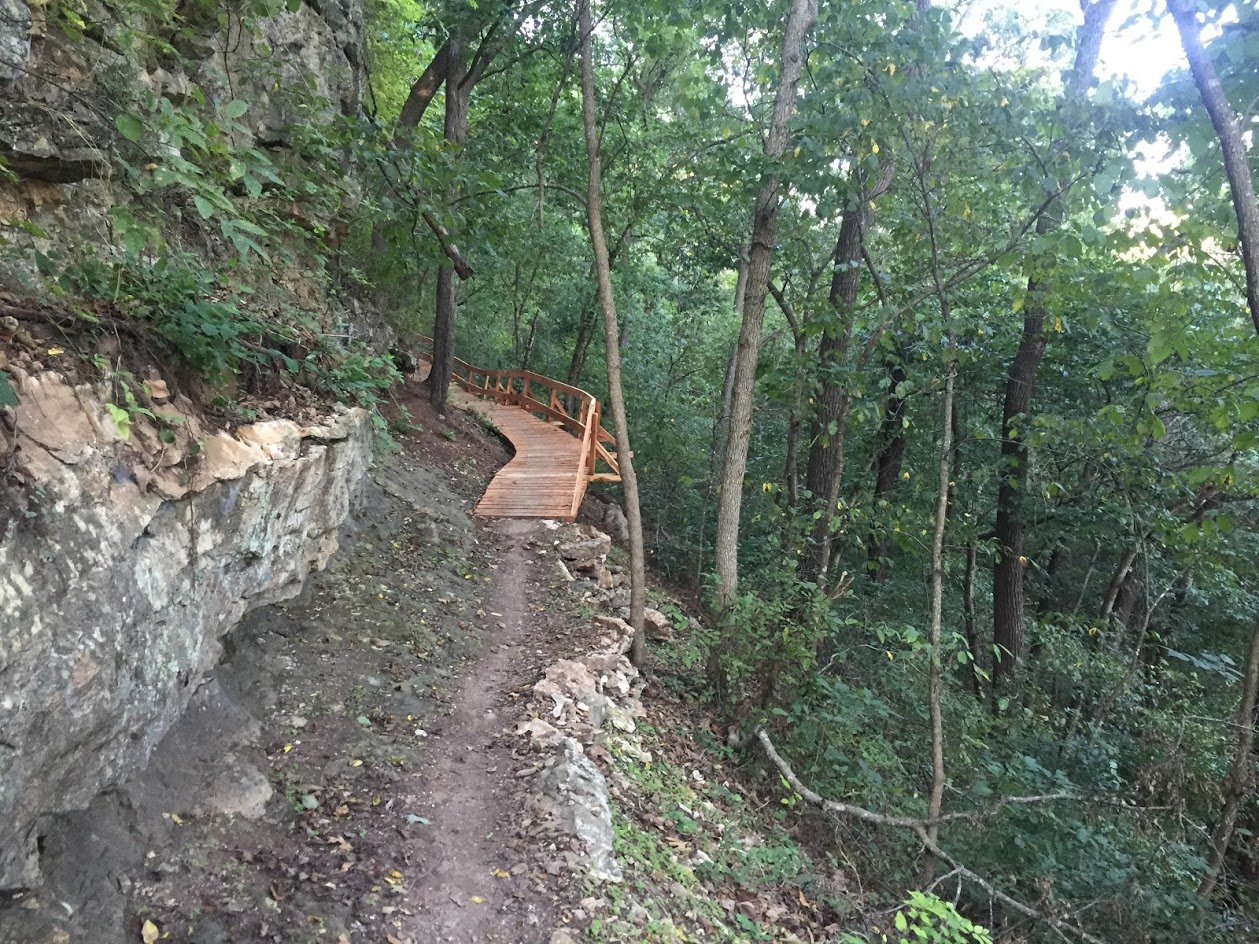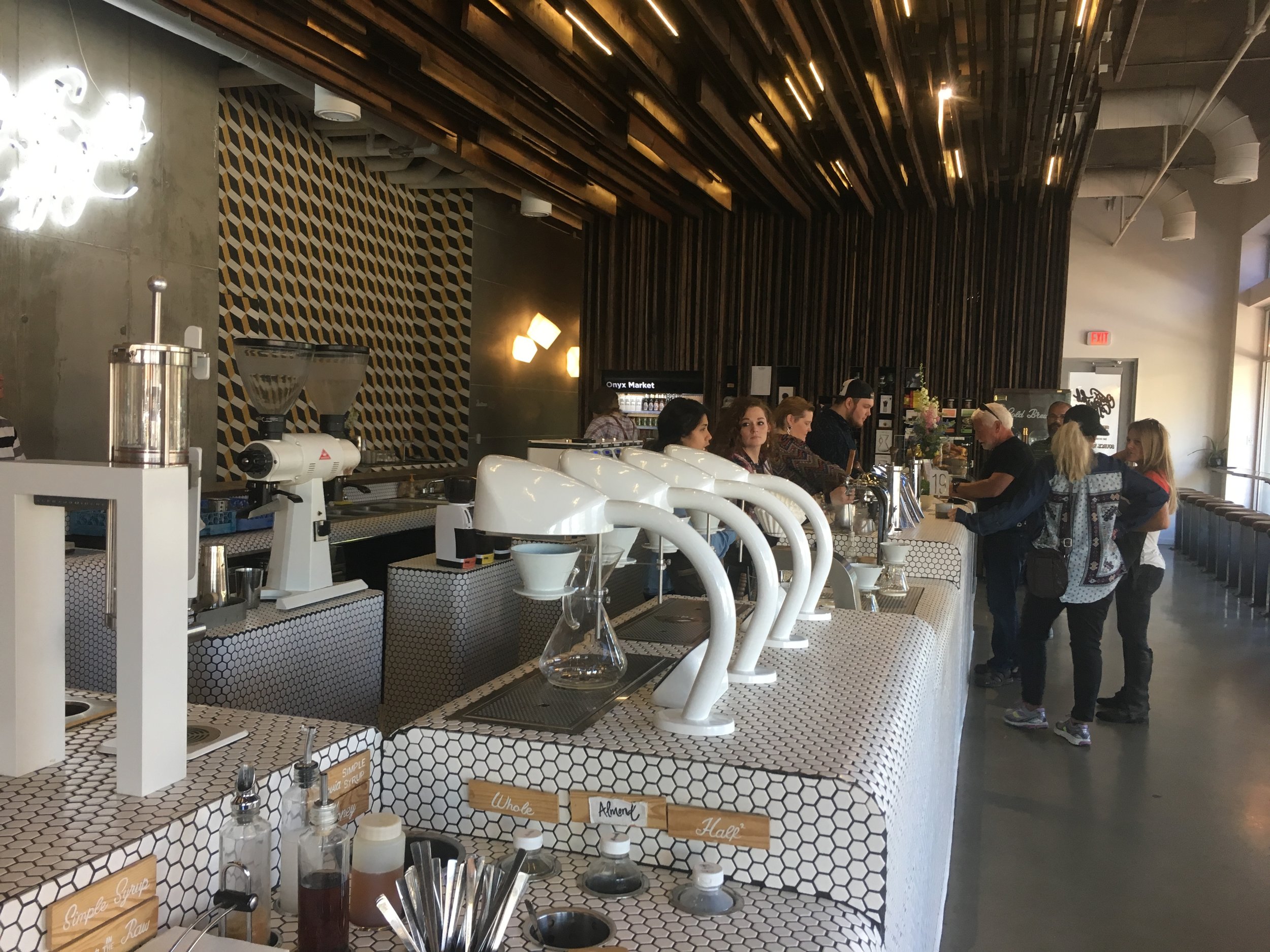Can Recreation Make Your Town Stronger?
When you think of vacations for recreational sports, Arkansas may not be the first state that comes to mind. But Bentonville, an unlikely gem tucked in the Ozarks of the Northwest part of the state, has become a growing hub for cycling and mountain biking.
Bentonville trails are known for their wooden features and unique mix of surfaces. (Source: Craig Dieckman)
Bentonville, once a sleepy, southern town of 32,000, has spent the last ten years dedicating itself to building parks and recreation for its residents. What began as a “Quality of Life” initiative for the town has transformed it into a tourist megacenter. Along the way, Bentonville's population has increased by at least 20% since the last census, officials estimate.
The town began building multi-use trails in 2007 after taxpayers approved a $15 million bond referendum dedicated to parks and recreation. (According to the city's budget, debt services amount to just 8.6% of expenditures in the city's budget.) It has since built over 60 miles of trails within the city, partnered on a 36 mile multi-use trail to connect to the larger college town of Fayetteville, and over 100 miles of singletrack (natural surface trails) accessible from downtown alone.
It is the connection of natural surface trails to the nearby downtown district via the paved paths that makes Bentonville unique, David Wright says, Director of Recreation in the city. Many other areas known for mountain biking can require 30 to 40 minute drives from the metropolis to reach a trailhead.
Where Private Meets Public
Bentonville may be a smaller city, but it is home to one of the largest corporations in the world: Walmart. When the city began building trails, the Waltons saw an opportunity and “jumped in,” according to Wright.
The Walton Family Foundation saw recreation as a way to attract employees to the region where the Walmart headquarters is located. According to Luis Gonzalez, Senior Communications Officer at the Walton Foundation, the campaign started as a part of their "Sense of Place" strategy, where they looked at what people valued about living in Northwest Arkansas — nature, green space, and the urban fabric. "Building trails was a way to preserve green spaces but also give people access," he said.
Slaughter Pen — the first and still most popular singletrack trail system in Bentonville—was funded almost exclusively by the foundation 11 years ago. Since then, it has awarded a variety of grants both to the city and local non-profits like NWA Trailblazers. Typical grants are at a 1:1 ratio, where the foundation matches every public dollar spent.
Walton Foundation partnered with PeopleForBikes in 2018 to conduct a study of the economic driver of cycling tourism in the region. The study found over 90,000 mountain bike tourists had visited Northwest Arkansas in 2017, resulting in $27 million spent at local businesses.
Onyx Coffee Lab, opened in 2015, is one of many new businesses to pop up as a result of the population surge. (Source: Aubrey Byron)
“A couple years ago, it would’ve been hard to find a tourist in Bentonville. Now there are people here from all over the world every weekend,” said Logan, a salesman at Phat Tire Bike Shop in Bentonville. According to Logan, the trails have changed everything from the way the business is being run to the type of bikes they sell.
People first began to take notice of the world-class trails in the area when International Mountain Biking Association (IMBA) rated the city as a “Silver Level” ride center in 2014 — a relatively rare honor, typically afforded to better known areas like Vail, CO and Jackson Hole, WY.
Then, IMBA hosted its 2016 World Summit in Bentonville, surprising many and introducing thousands to the trails. According to Wright, this is when things really began to take off. Media attention rolled in and from there, tourism skyrocketed.
“We’re in the middle of just a crazy population boom,” said Wright. Northwest Arkansas, a region that encompasses Bentonville, nearby Fayetteville, and more is estimated to be gaining 37 new residents per day. New businesses and restaurants have also sprung up in the last couple years as the population has continued to increase.
It’s not just cycling pulling in tourism. Northwest Arkansas has several, large lakes that attract visitors. Bentonville also opened Crystal Bridges Museum of American Art opened in 2011. The museum is considered one of the best collections of American Art, according to NPR and was largely funded by the Walton Foundation.
A Culture Shift
Benefits to the region go far beyond tourist dollars, though. According to the PeopleforBikes study, 27% of locals reported having ridden a bike in the six days since they were surveyed, which is over 10% higher than the national average. Active residents can save towns money in health costs long term, not to mention cutting down on expensive road maintenance costs as more people are able to travel by bike instead of car. With the Razorback Greenway, every major municipality in the region is connected via trail systems, making a simple and affordable way for citizens to commute.
Property values have also seen an increase in the region. Houses within a quarter mile of greenways sell for an average of nearly $15,000 more than homes further from the trail, according to the same report. Businesses in the area have also noticed positive effects.
Trails are being used to connect natural features to nearby towns, such as the lakes near Blowing Springs and Eureka Springs. (Source: Craig Dieckman)
The local junior high and high schools have even adopted mountain biking as school sports, while the region as a whole has formed an interscholastic league.
When asked a simple question—“Why bikes?”—Wright responded, “I don’t think we did just pick cycling. We invested in our ball fields, soccer fields. We opened a $24 million recreation center with a swimming pool and a library. We built multiple neighborhood parks in some of the more urban areas… But we’d be hard pressed to find we had as much return on any of those investments as we have with cycling.”
IMBA is now using Bentonville as a case study for the economic benefits trails can bring to a city in one of their “trail labs” in hopes of repeating the success.
As for other towns trying to become like Bentonville, Wright suggests, “Don’t be Bentonville. Be you. Be your community. Build the trail system that meets the needs of your citizens.”




Aubrey Byron serves as Membership Coordinator and Staff Writer for Strong Towns. She's a writer based in St. Louis, Missouri. Aubrey began engaging with public space as a cyclist and spends much of her free time trying to inspire more people to be comfortable on bikes through the advocacy of a local nonprofit, The Monthly Cycle. She is also passionate about outdoor adventure and reading.